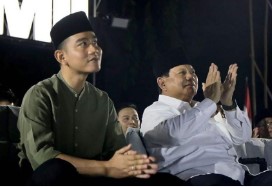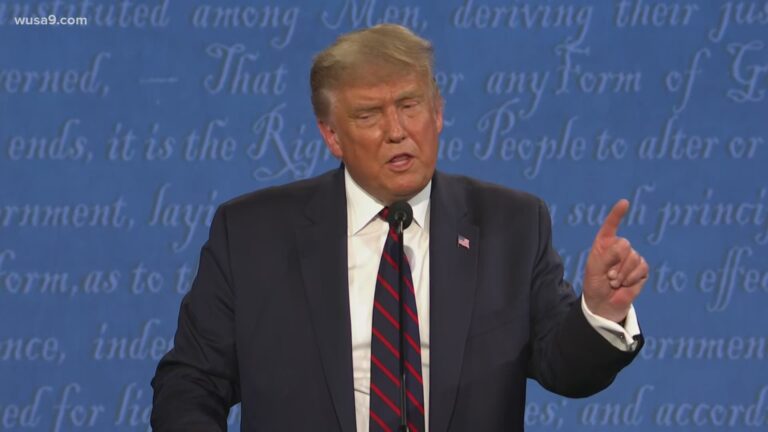
Gibran-Prabowo
STRATEGIC ASSESSMENT. The Indonesian Democratic Party of Struggle (PDI-P) has given its clearest sign yet that it is ready to contest the 2024 election without the support of President Jokowi and his family, citing disagreements over the latter’s attempt to subvert the Constitution. “We really loved and gave privileges to President Jokowi and his family, but we have been left behind because there were demands [from the President] that have the potential to violate moral principles and the Constitution,” Hasto said.
These “demands” could refer to either a recent controversial Constitutional Court ruling that cleared the way for Jokowi’s eldest son Gibran Rakabuming Raka to contest the February presidential election, or proposals looking to keep Jokowi in power beyond his second and final term — either via a constitutional amendment or an election delay.
Gibran Rakabuming Raka, the eldest son of President Jokowi, has officially ended his membership with the ruling PDI-P by becoming the running mate for Prabowo Subianto, PDI-P Secretary-General Hasto Kristiyanto.
All three Presidential candidates have vowed to maintain Indonesia’s long-standing commitment to a neutral and non-aligned foreign policy, while also being active on the international stage to champion world peace — including by advocating for Palestinians amid the ongoing Israel-Gaza war, with Prabowo Subianto going the furthest in this regard by saying he would push to open an Indonesian consulate in Palestinian territory if elected.
Closer to home, rising regional tensions are also reflected in the candidates’ policy platforms, with analyst Ahmad Rizky Umar predicting that former Central Java governor Ganjar Pranowo would veer closest to “the pattern established by Jokowi by delegating foreign political issues” to his foreign minister. “ Anies Baswedan and Muhaimin Iskandar will tend to be more critical of China in terms of maritime territorial integrity,” said Ahmad Rizky, an associate lecturer and researcher at the University of Queensland.
Prabowo Subianto, the prospective presidential candidate from the Onward Indonesia Coalition emphasized that he would continue President Jokowi’s work program if elected president in 2024. He deemed that Jokowi’s work program and policies had become the foundation for Indonesia to become a developed country by 2045. One of Jokowi’s policies that will be continued is the downstreaming of natural resources.
State-Owned Enterprises (SOE) Minister Erick Thohir expressed his support for Indonesian Defense Minister and presidential candidate Prabowo Subianto, who visited Erick’s residence in Jakarta. Erick added that his support for Prabowo was also because he believed that the presidential candidate of the Onward Indonesia Coalition could make Indonesia more advanced in the future.
President Jokowi on Monday invited three presidential candidates for the 2024 presidential election — Anies Baswedan, Ganjar Pranowo, and Prabowo Subianto — to have lunch together at the Merdeka Palace, Jakarta, sending a strong message of his neutrality for the upcoming election. The three candidates said that the lunch with the president was a relaxed, informal gathering without any “weighty topics” on the agenda, although Jokowi’s impartiality was a frequent talking point.
Indonesian General Election Commission (KPU) member Mochammad Afifuddin said the 2024 presidential election participant debates will be held five times, consisting of three presidential candidate debates and two vice presidential debates, during the campaign period, from Nov. 20, 2023 to Feb.10, 2024. According to Afifuddin, the debates will not only take place in Jakarta but also possibly in other cities. He added that environmental issues will most likely be one of the main issues in the debates.
Indonesian presidential hopeful Ganjar Pranowo led an opinion poll for the first time since election season formally got underway in October, nudging ahead of close rival and defence minister Prabowo Subianto. The Oct 26 to Oct 31 survey by Charta Politika showed 36.8 per cent of 2,400 respondents backed the ruling party’s Mr Ganjar while 34.7 per cent supported Mr Prabowo, with 24.3 per cent in favour of Mr Anies Baswedan, Jakarta’s former governor.
Indonesian Democratic Party of Struggle (PDI-P) Secretary General Hasto Kristiyanto firmly said that Gibran Rakabuming Raka was no longer part of the party. Hasto said he received a call from Golkar Party Chair Airlangga Hartanto that Gibran was already a member of the party. Hasto confirmed that Gibran had bid farewell to PDI-P through Central Council Chair Puan Maharani some time ago.
Prospective presidential candidate Ganjar Pranowo and vice-presidential Mahfud M.D. excelled in a survey simulation of three pairs of presidential candidates released by Charta Politika Indonesia on Monday. Ganjar and Mahfud are ahead with an electability of 36.8 percent, or about two percent ahead of Prabowo Subianto and Gibran Rakabuming’s electability.
Meanwhile, the Anies Baswedan-Muhaimin Iskandar pair is in the last position with an electability of 24.3 percent.
Among the three presidential candidate pairs, only Anies-Muhaimin recorded a decrease in electability. Anies-Muhaimin’s electability was recorded to decrease from the original 25.8 percent in the previous survey.
According to a Charta Politika Indonesia survey, presidential candidate Prabowo Subianto’s electability has declined after the consitutional court ruling and appointment of Gibran Rakabuming Raka as vice presidential candidate.
The ruling Indonesian Democratic Party of Struggle (PDI-P), announced that it has requested Bobby Nasution, President Jokowi’s son-in-law, to relinquish his party membership. This decision came after Bobby publicly declared his support for the rival presidential candidate, Prabowo Subianto.







